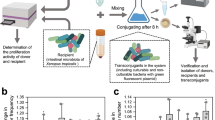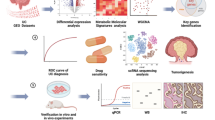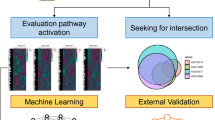Abstract
Chronic intestinal pseudo-obstruction (CIPO) syndromes are heterogeneous gastrointestinal disorders, caused by either neuropathy or myopathy, resulting in compromised peristalsis and intestinal obstruction. CIPO can have a profound impact on quality of life, leading the most severely affected individuals to life-long parenteral nutrition and urinary catheterization. To search for disease causing gene(s), we performed the whole exome sequencing (WES) in both eight sporadic and two familial cases, followed by targeted sequencing in additional CIPO patients. After identifying a heterozygous missense variant in the ACTG2 gene in one of 10 patients undergone WES, targeted Sanger sequencing of this gene allowed to detect heterozygous missense variants in 9 of 23 further patients with either megacystis-microcolon-intestinal hypoperistalsis syndrome or intestinal pseudo-obstruction. Variants thus identified, one of which still unreported, affect highly conserved regions of the ACTG2 gene that encodes a protein crucial for correct enteric muscle contraction. These findings provided evidence for a correlation between the clinical phenotype and genotype at the ACTG2 locus, a first step to improve the diagnosis and prognosis of these severe conditions.
Similar content being viewed by others
Log in or create a free account to read this content
Gain free access to this article, as well as selected content from this journal and more on nature.com
or
References
Knowles CH, De Giorgio R, Kapur RP et al: The London classification of gastrointestinal neuromuscular pathology: report on behalf of the Gastro 2009 International Working Group. Gut 2010; 59: 882–887.
De Giorgio R, Cogliandro RF, Barbara G, Corinaldesi R, Stanghellini V : Chronic intestinal pseudo-obstruction: clinical features, diagnosis, and therapy. Gastroenterol Clin North Am 2011; 40: 787–807.
Costa M, Fava M, Seri M et al: Evaluation of the HOX11L1 gene as a candidate for congenital disorders of intestinal innervation. J Med Genet 2000; 37: E9.
Gath R, Goessling A, Keller KM et al: Analysis of the RET, GDNF, EDN3, and EDNRB genes in patients with intestinal neuronal dysplasia and Hirschsprung disease. Gut 2001; 48: 671–675.
Pingault V, Girard M, Bondurand N et al: SOX10 variants in chronic intestinal pseudo-obstruction suggest a complex physiopathological mechanism. Hum Genet 2002; 111: 198–206.
Gargiulo A, Auricchio R, Barone MV et al: Filamin A is mutated in X-linked chronic idiopathic intestinal pseudo-obstruction with central nervous system involvement. Am J Hum Genet 2007; 80: 751–758.
Lehtonen HJ, Sipponen T, Tojkander S et al: Segregation of a missense variant in enteric smooth muscle actin g-2 with autosomal dominant familial visceral myopathy. Gastroenterology 2012; 143: 1482–1491.
Holla OL, Bock G, Busk OL, Isfoss BL : Familial visceral myopathy diagnosed by exome sequencing of a patient with chronic intestinal pseudo-obstruction. Endoscopy 2014; 46: 533–537.
Thorson W, Diaz-Horta O, Foster J et al: De novo ACTG2 variants cause congenital distended bladder, microcolon, and intestinal hypoperistalsis. Hum Genet 2014; 133: 737–742.
Wangler MF, Gonzaga-Jauregui C, Gambin T et al: Heterozygous de novo and inherited variants in the smooth muscle actin (ACTG2) gene underlie megacystis-microcolonintestinal hypoperistalsis syndrome. PLoS Genet 2014; 10: e1004258.
Klar J, Raykova D, Gustafson E et al: Phenotypic expansion of visceral myopathy asso'ciated with ACTG2 tandem base substitution. Eur J Hum Genet 2015; 23: 1679–1683.
Tuzovic L, Tang S, Miller RS et al: New Insights into the genetics of fetal megacystis: ACTG2 variants, encoding γ-2 smooth muscle actin in megacystis microcolon intestinal hypoperistalsis syndrome (Berdon syndrome). Fetal Diagn Ther 2015; 38: 296–306.
Fava M, Borghini S, Cinti R et al: HOX11L1: a promoter study to evaluate possible expression defects in intestinal motility disorders. Int J Mol Med 2002; 10: 101–106.
Martucciello G, Torre M, Pini Prato A et al: Associated anomalies in intestinal neuronal dysplasia. J Pediatr Surg 2002; 37: 219–223.
Gauthier J, Ouled Amar Bencheikh B, Hamdan FF et al: A homozygous loss-of-function variant in MYH11 in a case with megacystis-microcolon-intestinal hypoperistalsis syndrome. Eur J Hum Genet 2015; 23: 1266–1268.
Mc Laughlin D, Puri P : Familial megacystis microcolon intestinal hypoperistalsis syndrome: a systematic review. Pediatr Surg Int 2013; 29: 947–951.
Guo DC, Pannu H, Tran-Fadulu V et al: Mutations in smooth muscle alpha-actin (ACTA2) lead to thoracic aortic aneurysms and dissections. Nat Genet 2007; 39: 1488–1493.
Milewicz DM, Østergaard JR, Ala-Kokko LM et al: De novo ACTA2 mutation causes a novel syndrome of multisystemic smooth muscle dysfunction. Am J Med Genet 2010; 152: 2437–2443.
Richer J, Milewicz DM, Gow R et al: R179H mutation in ACTA2 expanding the phenotype to include prunebelly sequence and skin manifestations. Am J Med Genet 2012; 158A: 664–668.
Puri P, Shinkai M : Megacystis microcolon intestinal hypoperistalsis syndrome. Semin Pediatr Surg 2005; 4: 58–63.
Acknowledgements
We thank Giuseppe Santamaria for his technical support, and all the patients and families for participating in this study. We would also like to thank the Exome Aggregation Consortium and the groups that provided exome variant data for comparison. This work was supported by the Italian Ministry of Health through, both grant RF-2010–2314356, ‘Cinque per mille’ and Ricerca Corrente to the Gaslini Institute; a research grant from the Shenzhen Municipal Government of China (NO.CXZZ20130517144604091) and the Institutional Development Funds to Dr Hakon Hakonarson (Center for Applied Genomics at the Children’s Hospital of Philadelphia).
Author information
Authors and Affiliations
Corresponding author
Ethics declarations
Competing interests
The authors declare no conflict of interest.
Additional information
Supplementary Information accompanies this paper on European Journal of Human Genetics website
Supplementary information
Rights and permissions
About this article
Cite this article
Matera, I., Rusmini, M., Guo, Y. et al. Variants of the ACTG2 gene correlate with degree of severity and presence of megacystis in chronic intestinal pseudo-obstruction. Eur J Hum Genet 24, 1211–1215 (2016). https://doi.org/10.1038/ejhg.2015.275
Received:
Revised:
Accepted:
Published:
Issue date:
DOI: https://doi.org/10.1038/ejhg.2015.275
This article is cited by
-
Exploring the complexities of megacystis-microcolon-intestinal hypoperistalsis syndrome: insights from genetic studies
Clinical Journal of Gastroenterology (2024)
-
Use of whole genome sequencing to determine the genetic basis of visceral myopathies including Prune Belly syndrome
Journal of Rare Diseases (2023)
-
Multi-disciplinary Insights from the First European Forum on Visceral Myopathy 2022 Meeting
Digestive Diseases and Sciences (2023)
-
Recurrent ACTG2 gene variation in African degenerative visceral leiomyopathy
Pediatric Surgery International (2019)
-
Consanguinity and its relevance for the incidence of megacystis microcolon intestinal hypoperistalsis syndrome (MMIHS): systematic review
Pediatric Surgery International (2019)



